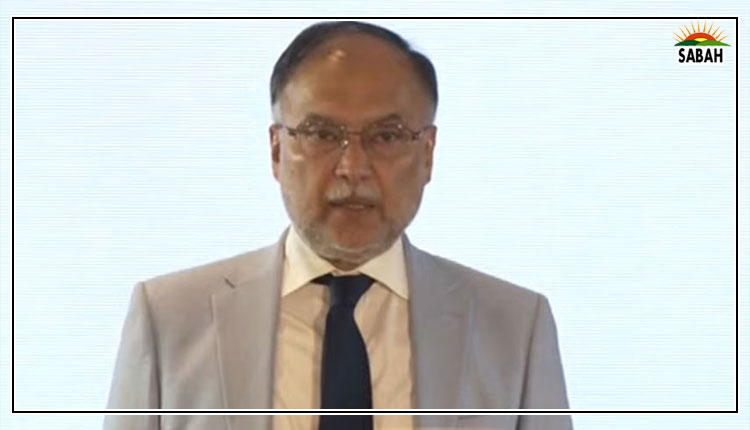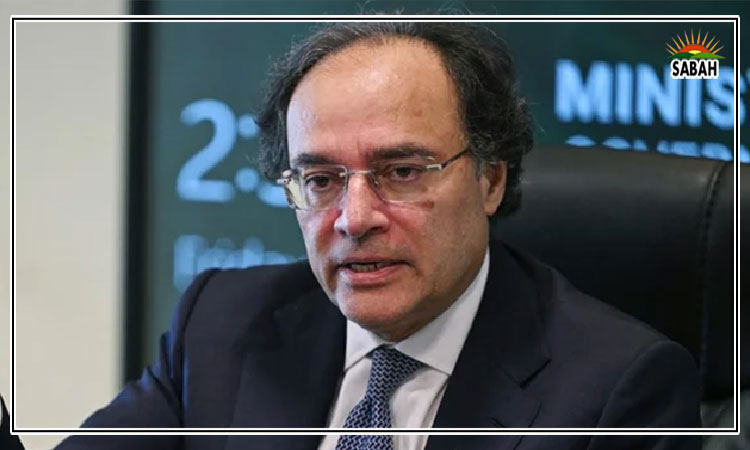Disqualification clarity…Ali Tahir
In the first instance the Supreme Court disqualified Nawaz Sharif as a member of the National Assembly, and thus as the prime minister. The Supreme Court declared that by having failed to disclose his unwithdrawn receivables constituting assets from his sons UAE company in his nomination papers he had furnished a false declaration under solemn affirmation and therefore he was not honest in terms Article 62(1)(f) of the constitution.
In the second instance, six months later the Supreme Court held that a person so disqualified as being dishonest could not be the head of a political party and therefore ordered that Nawaz Sharif be removed as head of the PML-N.
It was, however, in the third instance that the final, and fatal, blow was struck. In the Samiullah Baloch case the Supreme Court held that the period of disqualification for failing to meet the qualifications under Article 62(1)(f) of the constitution was a permanent incapacitation. The disqualification imposed upon a politician for election would last for as long as the declaration was in force, and if such declaration attained finality, then the disqualification was lifetime.
The Supreme Court held that this was because the constitution did not fix the period of disqualification under Article 62(1)(f) it showed a clear intention that disqualification should extend so long as the declaration remained in field, of course since an exercise of Article 184(3) powers by the Supreme Court has no appeal, and Nawaz Sharif and Jehangir Tareen were disqualified exercising such jurisdiction by the Supreme Court, their disqualification became life-long. Review petitions on this judgments were subsequently dismissed.
This is one of the reasons the government has twice introduced bills in parliament to provide for an appeal for orders passed under Article 184(3). First, the Supreme Court Practice and Procedure Bill, 2023 and then the Supreme Court Review of Judgments and Orders Bill, 2023. The first bill never became law because the Supreme Court passed a stay order holding that the act shall not have, take or be given any effect nor be acted upon in any manner. The second bill was made an act of parliament as surprisingly the president had assented to it, but it is currently under challenge before the Supreme Court which is hearing objections to its constitutionality along with petitions to hold a general election to the Punjab Assembly.
The government has now in the third instance acted sharply by introducing the Elections (Amendment) Act 2023 bill in the National Assembly. If passed as law it will effectively do away with the permanent disqualifications of two major politicians, Nawaz Sharif and Jehangir Tareen. The bill states that notwithstanding anything contained in any other provisions of this act, any other law for the time being in force and judgment, order or decree of any court, including the Supreme Court and a high court, the disqualification of a person to be elected, chosen or to remain as a member of parliament under Article 62(1)(f) shall be for a period not exceeding five years from the declaration by the court of law in that regard and such declaration shall be subject to the due process of law. This has completely overturned the Supreme Courts judgment on lifetime disqualification over its head.
This is specially so for the reason that the Supreme Court in the advisory opinion on the presidential reference on disqualification of defectors for life time has held with regard to the question of the president whether a member finally declared to have committed defection in terms of Article 63A stands disqualified for life that it is for parliament to enact such legislation and that the matter of life-long disqualification should be best decided by parliament for the reason that the cyclical nature of the electoral process must be taken into consideration and to impose a lifetime ban is to remove the defector for all cycles to come. It is ironic that this opinion was the reason that PTI defectors votes were not counted when they voted for Hamza Shahbaz and as a result Pervez Elahi became chief minister of Punjab, but this opinion also supports the new bill, which will wash away permanent disqualification of Hamza Shahbazs uncle and party leader.
Article 63(1)(p) states that a person should be disqualified from being elected a member of parliament if s/he is for the time being disqualified under a law of parliament. The new bill takes this into account as well by stating that the duration of the disqualification provided in Articles 62 and 63 will be as provided in those articles except where it has not been provided. Article 62(1)(f), the article under which Nawaz Sharif and Jehangir Tareen were disqualified does not provide such a duration and hence will now be regulated by this amendment if it becomes law.
Hence, it can be fairly concluded that the new bill introduced by the government, if made into law, will wash away Nawaz Sharif and Jehangir Tareens disqualification as it is backed by the express words of the constitution and the Supreme Courts own opinion delivered in a presidential reference.
This must be the net effect. The Supreme Court itself has taken very lenient views in other cases Murad Ali Shah, Nida Khuhro and Khawaja Asif were all declared qualified to be members of parliament as evidence was not recorded in their cases. No evidence was recorded in the cases of Nawaz Sharif and Jehangir Tareen as well, but somehow the result was different. The case of Khawaja Asif was quite identical to Nawaz Sharif; he too had not declared salaries from a company in the UAE and the Islamabad High Court had disqualified him on grounds of Nawaz Sharifs case, but the Supreme Court in appeal overturned it.
This leniency can specially be seen in the case of Faisal Vawda where the Supreme Court observed that since Vawda has shown remorse for his misdeclaration of renunciation of USA citizenship and will take immediate steps to present his resignation to the chairman Senate he shall not be considered disqualified in any subsequent election.
Nawaz Sharif and Jehangir Tareen must also be meted the same treatment, and the draconian life-long disqualification must end. To this end, the newly introduced bill must be applauded as it will do exactly that if it becomes law.
Courtesy The News












